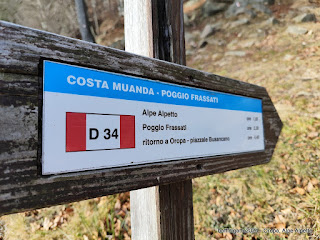1.Cosa resta di me dopo la pioggia
battente
di una notte gelata?
Quello che richiede la Vita
- un eterno asciugarsi
alla fiamma
dorata
tra le proprie dita.
2.Cosa resta di me dopo la pioggia
di una notte gelata?
Quello che regala la Vita
- schegge di saggezza infinita,
diamanti piantati nel cuore.
(Testo e immagini di Enea Grosso)
1. What's left of me
after pouring rain
throughout
a frozen night?
That which Life requires
- an eternal drying
in the golden flame
between my own fingers.
2.What's left of me after the rain
of a frozen night?
The very gift of Life
- splinters of infinite wisdom,
diamonds planted in the heart.
(Text and images by Enea Grosso)
1. Lo que queda de mí después
de la lluvia
latiendo
de una noche helada?
Lo que la Vida requiere
- un eterno secarse
en la llama
dorada
entre mis dedos.
2.¿Qué queda de mí después
de la lluvia
de una noche helada?
Lo que la Vida regala
- astillas de sabiduría
diamantes plantados
en el corazón.
(Texto e imágenes de Enea Grosso)
1.Ce qui reste de moi
après la pluie
battante
d'une nuit gelée ?
Ce que la vie exige
- un séchage éternel
dans la flamme
dorée
entre mes doigts.
2.Que reste-t-il de moi
après la pluie
d'une nuit gelée ?
Ce que la vie nous donne
- des éclats de sagesse infinie,
diamants plantés dans le cœur.
(Texte et images d'Enea Grosso)
1.Was bleibt von mir
nach dem schweren Regen
einer eiskalten Nacht?
Alles, was das Leben verlangt
- ein ewiges Trocknen
in der goldenen Flamme
zwischen meinen eigenen Fingern.
2.Was bleibt von mir nach dem Regen
einer eisigen Nacht?
Das reiche Geschenk des Lebens
- Splitter unendlicher Weisheit,
Diamanten im Herzen gepflanzt.
(Text und Bilder von Enea Grosso)
Questa poesia è iniziata il due Febbraio e si è risolta con una seconda strofa tre giorni dopo, camminando al centro di Masserano, nel tratto da Frazione Mombello all'antica chiesa di San Teonesto. Nel primo appunto la pioggia battente cadeva "su abiti già fradici" e le dita erano mani: non cerco mai la rima a tutti i costi, a volte la evito proprio, ma qui mi piaceva il richiamo "vita-dita".
Gli abiti fradici invece sono spariti quasi subito. Ringrazio Marco Conti - scrittore e poeta biellese - che anni fa mi disse:" quando arriva una poesia, devi sfrondare e potare".
Così come si fa con un diamante grezzo.
This poem began on 2nd February and ended with a second stanza three days later, walking through the centre of Masserano, in the stretch from Frazione Mombello to the ancient church of San Teonesto. In the first verse, the pouring rain fell 'on clothes that were already soaked' and the fingers were hands: I never try to rhyme at all costs, sometimes I just avoid it, but here I liked the 'vita-dita" reference ("life - fingers", but of course the rhyme disappears in English and in the other languages).
The soggy clothes, on the other hand, disappeared almost immediately. I thank Marco Conti - a writer, poet and teacher of creative writing from Biella - who told me years ago: 'when a poem arrives, you have to prune and prune'.
Just as one does with a rough diamond.
In the pictures I am in the mountains above the Tracciolino in (Oropa, Biella), at Alpe Alpetto. Continuing from there, you can reach Poggio Frassati or the area known as 'Le Sette Fontane'. It is possible to make a ring-route, starting from the arrow pointing to path D34 and descending along the paved path not far from Alpe Alpetto, at the Muanda.
 |
| #luoghichesonopoesia |
 |
| #biellaèbellaperché ... a venti minuti dal centro città il mondo è ai nostri piedi! |
 |
| Biella e il Biellese ai piedi dei monti attorno al Santuario di Oropa |










Nessun commento:
Posta un commento